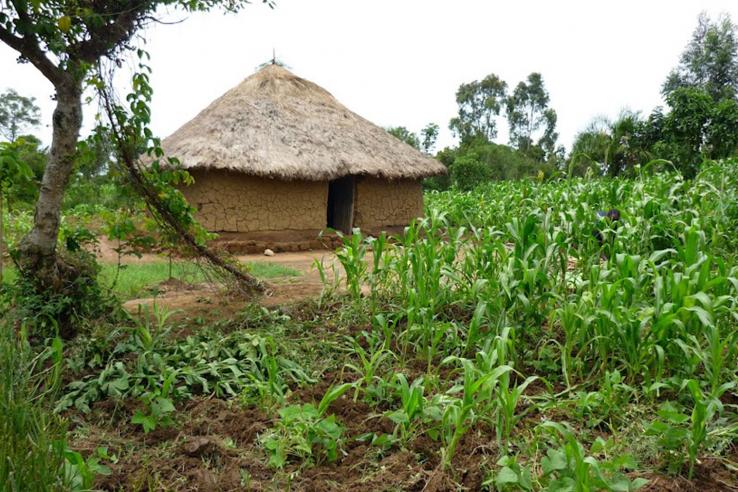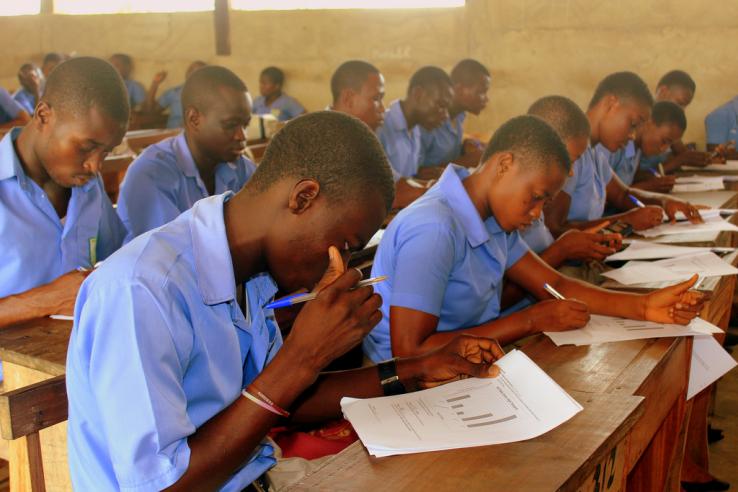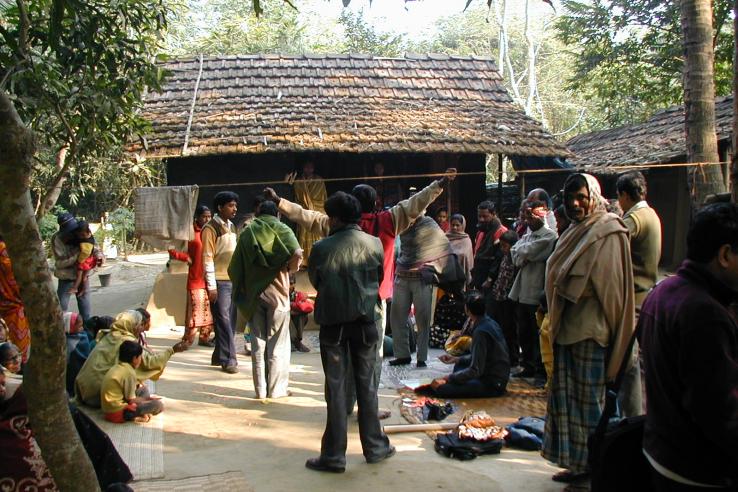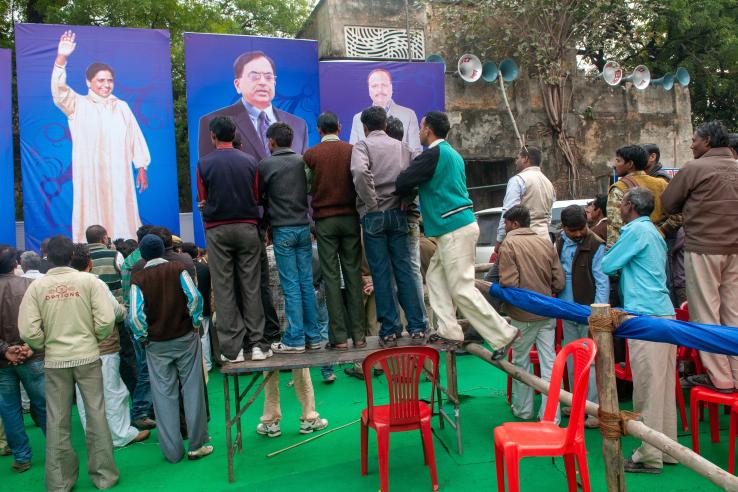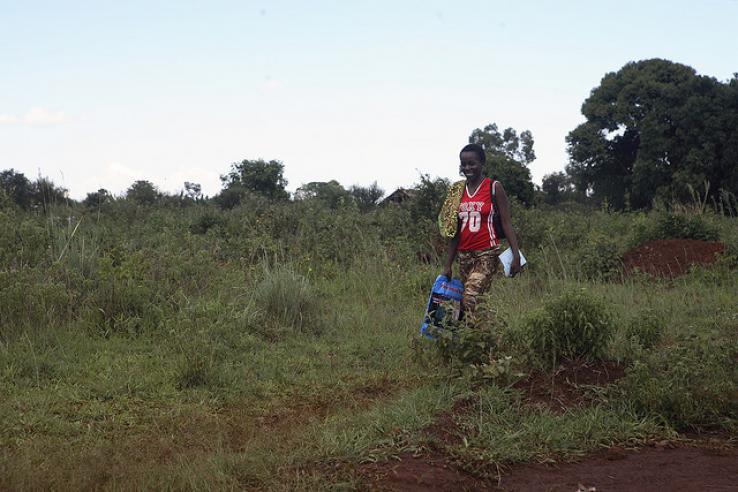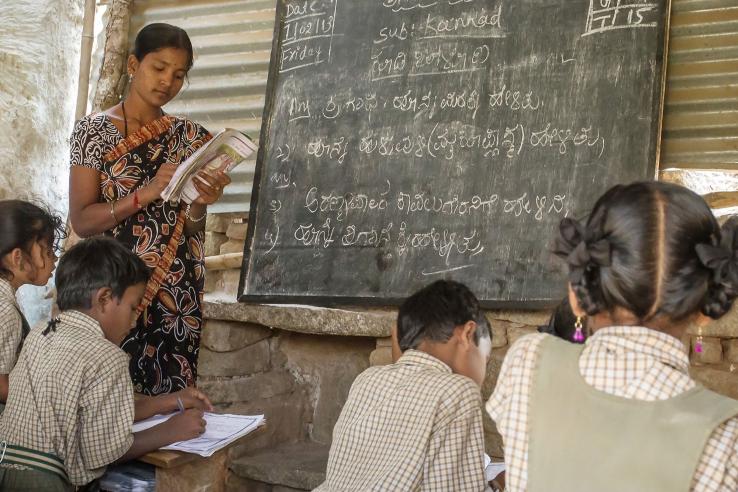Displaying 631 - 645 of 1291
Evaluation
Researchers conducted a randomized evaluation to test the impact of offering coupons, facilitated discussion groups, and measuring spoons on fertilizer usage, fertilizer knowledge, and agriculture-related discussions amongst farmers. While discussion groups alone had no impact on fertilizer use, coupons and spoons both increased fertilizer use and led to more knowledge-sharing among farmers.
Evaluation
In partnership with the Government of Jharkhand, researchers conducted a randomized evaluation to study the impact of unconditional, framed cash transfers to pregnant women and lactating mothers on child health.
Evaluation
Researchers used Chicago’s school choice program, which uses a random lottery to allocate slots in elementary schools, to evaluate how the opportunity to attend a higher-quality school impacts academic achievement. They found that lottery winners are more likely to attend higher-performing schools, but they do not have higher test scores than their peers who were not offered slots.
Evaluation
Understanding the factors that influence voting behavior is a central policy issue. Often voting outcomes directly determine funding of critical public goods such as public education.
Evaluation
A study conducted in Ghana over 15 years evaluated the benefits of secondary school scholarships on both education and health outcomes.
Evaluation
In Sub-Saharan Africa, wage job opportunities are limited, and a vast majority of young people are engaged in low-productive work. Many governments support formal apprenticeship programs to help youth find suitable employment, but there is limited evidence on the direct and indirect effects of these public interventions. Researchers partnered with the World Bank and the government of Cote d’Ivoire to evaluate the impact of a subsidized dual apprenticeship program targeting both youth and firms. The apprenticeship program increased participation among youth in formal apprenticeships, and participating firms hired more formal apprentices after the program was implemented.
Evaluation
Researchers evaluated the learning impacts of using AI systems to score and comment on essays written for Brazil’s national post-secondary admission exam. In schools where AI technology was introduced, teachers were able to provide more frequent individualized feedback to students, and students’ essay scores improved as a result.
Evaluation
Following the implementation of a policy mandating lower-caste representation in some local village councils in India, researchers evaluated how lower-caste presidents invested in and distributed goods. They found that disadvantaged lower-caste groups received more public goods in councils with an elected leader from their own group.
Evaluation
Researchers conducted a randomized evaluation of cricket teams in rural India to identify whether team composition could improve intergroup harmony. Collaborative contact between cricket players of different castes reduced prejudice toward members of lower castes and increased cross-caste interaction, while adversarial contact increased prejudice in intergroup interactions.
Evaluation
Researchers evaluated the impact of sharing information via street theater on voters' preferences. The study found that some types of information increased voter turnout, and some voters changed their preferences.
Evaluation
Researchers are using Western Seed Company's expansion into new areas to evaluate the socio-economic effects of the hybrid maize program in Western and Central Kenya.
Evaluation
Researchers evaluated whether offering individuals financial incentives to maintain their HIV-negative status could be an effective HIV prevention strategy in rural Malawi. The conditional cash transfer had no effect on HIV status or on self-reported sexual behavior. The receipt of the cash incentive actually increased the likelihood of risky sex among men but decreased risky sex among women.
Evaluation
By leveraging a unique, long-lasting relationship with an armed organization in eastern Democratic Republic of Congo, the researcher aims to better understand who joins armed organizations and why, as well as the effect of the participation motives on performance inside the group.
Evaluation
Researchers conducted a randomized evaluation in the Indian state of Andhra Pradesh to measure the relative effectiveness of conditional versus unconditional bonuses on improving the quality of schools. Offering conditional incentives to individual teachers was a cost-effective way to improve student test scores across subjects.
